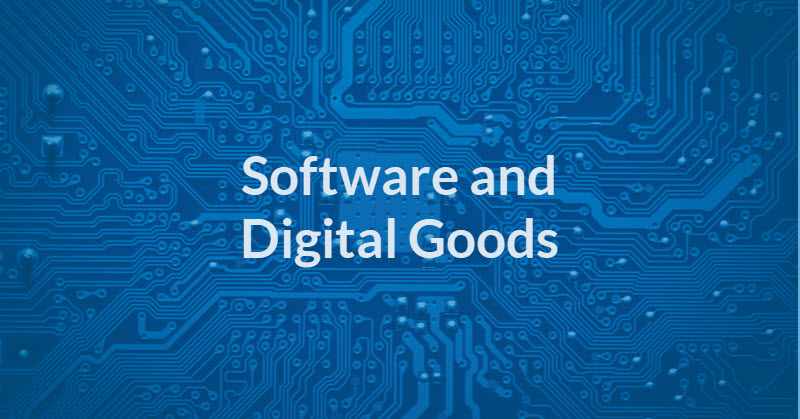Our digital world continues to evolve, the pace of progress is ever-increasing, and with it the importance of technology in our everyday lives. Software and digital goods have become ubiquitous and the ways in which we receive, access, and interact with those goods is increasingly innovative and novel.
States rely on tax revenue from retail sales and have struggled to keep up with the rapid pace of progress when it comes to taxing new methods people and businesses turn to in their consumption of software and digital goods.
States have historically struggled to keep their sales tax laws and rules up to date with evolving technologies but at the same time, they are loathed to allow these transactions to escape their taxing reach.
This confluence of circumstances creates significant ambiguity and uncertainty for sellers operating on the cutting-edge while trying to maintain accurate sales tax compliance. As a trusted tax advisor to a tech company, it’s important for you to know how software and digital goods are taxed across the country and how taxation can change based on the circumstances of the sale.
Here are two critical questions to ask clients with sales of software or digital goods.
What is being sold?
Any analysis of the taxability of software or digital goods starts with identifying the nature of the thing being sold. This can sound like a simple question; however, the varying approaches states take to taxing such items can cause confusion.
Some states view software or digital goods as tangible personal property (TPP) or digital equivalents thereof. Other states can look at the same item being sold and tax or exempt it as a service (i.e., information service) or as a completely separate category of items the state has specifically carved out.
Once you can identify whether the state or taxing jurisdiction treats software or digital goods as TPP or a service or something else, the most important thing to identify will be how the products are delivered, received, or accessed by customers. A product's method of delivery heavily influences taxability when it comes to software and digital goods. Common methods of delivery include physical media; electronic delivery (download); electronic access; or streaming.
Once you know what your client is selling and how they are selling (or licensing) it, you can then help them determine the proper tax treatment of that item everywhere it can be sold, which often means knowing the tax answer in every state with a sales tax.
Where is it being sold?
Taxing jurisdictions take varying approaches related to delivery methods. Over time states have caught up to taxing things like electronically delivered goods (downloaded products); however, software-as-a-service (SaaS), cloud, and digitally accessed products still pose a challenge for taxing authorities.
For example, in Massachusetts software is taxable regardless of delivery method, while digital products are exempt regardless of the taxability of any physical counterpart. Alternatively, Colorado (state and state-administered locals) exempts electronically delivered software and taxes digital goods in the same manner as their physical equivalents.
Depending on the state or taxing jurisdiction there may be additional considerations sellers must account for when evaluating the sale of any software or digital products. Whether a product is for business or consumer use can alter a tax result.
New Jersey and North Carolina have special exemptions for certain business software. Another common taxability toggle is canned versus custom for sales of software. Other considerations may include transaction type, such as Chicago applying a “Personal Property Lease Transaction Tax” on SaaS transactions.
With all of this to consider one thing is clear, as technology progresses businesses must prepare and adapt to the complexity of the taxes that can apply to such products. In this ever-changing world, the importance of scalable sales tax automation can’t be dismissed.
.png?width=150&height=63&name=TWRlogo-regmark_blueblack%20(1).png)
.png)










Do you have questions about this article? Email us and let us know > info@woodard.com
Comments: